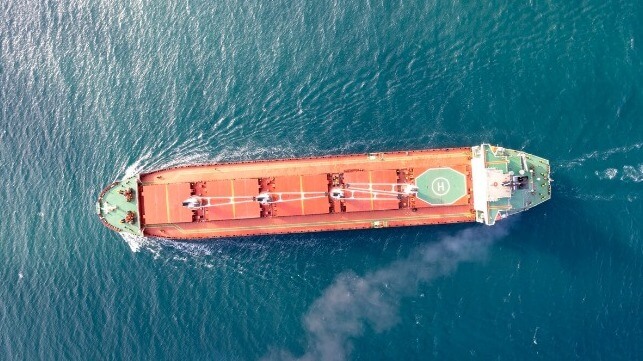Is Data the Key to Efficiency Technology Adoption?

Efficiency technologies range from rigid wing sails to air lubrication systems, each offering unique opportunities to reduce greenhouse gas emissions and operational costs. Despite their rapid evolution and the wealth of options available to shipowners, precise evaluation is essential to build a strong investment case and maximize impact. Iebum Shin, Data Analytics Lead at Houlder, discusses the challenges in adopting efficiency technologies and highlights how data is key to making progress.
In the complex and dynamic maritime industry, achieving decarbonization requires more than just ambition; it calls for robust data and informed decision-making. Sherlock Holmes once said, "It is a capital mistake to theorize before one has data," a statement that resonates strongly in today's industry landscape, defined by evolving efficiency technologies and stringent regulations.
Overcoming data deficits
Houlder's recent qualitative decarbonization survey revealed a critical barrier: a lack of high-quality, relevant operating data remains a barrier to the adoption of maritime efficiency technologies. This data deficit not only restricts investment decisions but also complicates the evaluation and integration of transformative solutions.
Progress toward decarbonization requires a proactive and collaborative approach. Shipowners must leverage real-world performance data, assess various technologies, and identify fleet-wide trends. Shifting from 'quick wins' to holistic efficiency technology adoption is crucial for driving meaningful industry-wide change.
Accurate performance data will be fundamental in fostering trust and collaboration between technology providers and shipowners. It creates a win-win scenario: technology providers build credibility through successful case studies, while shipowners demand technologies that align with their operational needs and sustainability goals. Importantly, shipowners need to see that the technology delivers the promised results.
Clean technology providers may sometimes be hesitant to share their performance data. In such cases, an independent expert intermediary can bridge the gap between technology providers' projections and the assurances shipowners need for final investment decisions.
Analyzing ship performance
Effective analysis of efficiency technologies starts with understanding the ship's unique operating performance and duty profile, rather than focusing solely on the technology itself. Emissions performance varies significantly based on factors such as ship type, route, cargo, vessel speed, sea state, vessel loading condition, and fuel type. With sufficient data and advanced analysis tools, broader insights can be accessed across various ships to identify fleet-wide trends. Key considerations include ensuring that performance data covers the entire operational range of the vessel and reflects actual voyages.
Charting the course
Efficiency technologies are continually evolving, offering significant potential for fuel savings and emissions reductions. Low or zero-carbon propulsion technologies, including fuel cells and batteries, alongside propulsion assists like Flettner rotors, promise to achieve zero-emission shipping. Energy efficiency innovations, such as waste heat recovery systems, can also significantly improve vessel efficiency.
The economic landscape is rapidly evolving, with incentives and regulatory frameworks increasingly favoring efficiency and decarbonization. The European Union's Emissions Trading System (EU ETS) imposes increasing costs on carbon emissions, strengthening the business case for energy efficiency technologies. Additionally, FuelEU Maritime promotes the installation of certain abatement methods and the use of low-carbon fuels by setting progressively stringent GHG emission targets based on the 2020 MRV fleet baseline. Similarly, the International Maritime Organization's Carbon Intensity Indicator (IMO CII) is set to have a significant commercial impact on shipowners, emphasizing the importance of efficiency technologies for achieving superior ratings and favorable charter party agreements. These technical and economic factors must also be incorporated into any sustainability analysis and strategy.

that matters most
Get the latest maritime news delivered to your inbox daily.
While the debate on alternative fuels continues, one thing is clear: efficiency technologies are essential for driving sustainability. However, their integration must be underpinned by rigorous analysis and a commitment to transparency. By embracing innovative solutions and prioritizing data collection, verification and transparency, we can accelerate progress toward a cleaner, more sustainable maritime sector today.
Iebum Shin is the Data Analytics Lead at maritime consultancy Houlder.
The opinions expressed herein are the author's and not necessarily those of The Maritime Executive.
